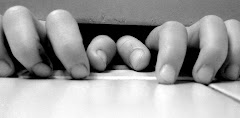 To consult one’s memory is to consult what one hopes is the accurate engraving of reality on the soul itself. Odd, isn’t it, that we must always turn inwards—by consulting reason, memory, feelings, or conscience—to make sense of the world outside of us. That inward life is never directly discernable by anyone but ourselves, and it’s not even clear to us what’s going on within us. Is our soul like a museum that a visitor, the real me, the self, walks through at his leisure? Or is the “real me” the museum itself becoming aware of itself selectively and discursively?
To consult one’s memory is to consult what one hopes is the accurate engraving of reality on the soul itself. Odd, isn’t it, that we must always turn inwards—by consulting reason, memory, feelings, or conscience—to make sense of the world outside of us. That inward life is never directly discernable by anyone but ourselves, and it’s not even clear to us what’s going on within us. Is our soul like a museum that a visitor, the real me, the self, walks through at his leisure? Or is the “real me” the museum itself becoming aware of itself selectively and discursively?
A weak or thin internal life is dry, flat, and subject to the buffeting of the outside world. A world lived entirely inside oneself is either the mark of genius or, more often, the clinically insane. As I’ve grown older, I’ve found that I live within myself more and more--that is, I take pleasure increasingly by my own internal dialogues and games--and perhaps for this reason (as I'm no genius) I worry at what stage one knows—or can know—when one is going insane.
 A funny and really smart buddy of mine, Tom Hornack, once told me a story about an Indian "tracker" who taught a white friend of his how to "read" the land. The key to close observation is...big surprise here...to actually look around. But the point, said the Indian, is that too many people simply do not know how to look about oneself. For instance, while walking on a path most people look left and right, but their vision is always eyes-high. They don't crouch, look up, move a bit off the track—simple things. To really see we need to look at things from more than one perspective, to force oneself also not to block out what one ordinarily blocks out, and to make visible which, for most purposes, is typically invisible to oneself. That’s part of the reason why when we enter a person’s house we instantly notice all manner of things the homeowner has not noticed or, more likely, once noticed but has now “forgotten.”
A funny and really smart buddy of mine, Tom Hornack, once told me a story about an Indian "tracker" who taught a white friend of his how to "read" the land. The key to close observation is...big surprise here...to actually look around. But the point, said the Indian, is that too many people simply do not know how to look about oneself. For instance, while walking on a path most people look left and right, but their vision is always eyes-high. They don't crouch, look up, move a bit off the track—simple things. To really see we need to look at things from more than one perspective, to force oneself also not to block out what one ordinarily blocks out, and to make visible which, for most purposes, is typically invisible to oneself. That’s part of the reason why when we enter a person’s house we instantly notice all manner of things the homeowner has not noticed or, more likely, once noticed but has now “forgotten.”
 The following is an excerpt of a speech I gave as commentary to the film, "Requiem for a Dream."
The following is an excerpt of a speech I gave as commentary to the film, "Requiem for a Dream."
Addiction blots out everything else but the object of addiction in this world for the addict. At its most extreme the object of addiction becomes the one and only thing the addict is willing to live and, all too often, die for. The kaleidoscopic diversity of life’s experiences and the playful and infinitely nuanced subtleties of our own inner life and personality are stomped out by the addiction, and all that remains is the desperately urgent desire that pleads, screams, lies, cheats, and, if necessary, murders for more, more, and more. When your arm is healthy, you hardly notice it at all. But when you fracture your arm, it cries out for attention. Perhaps the soul is like this as well: A well-ordered soul does not bring attention to itself but a fractured soul screams and screams and screams.
The heart of addiction is misplaced and deadly longing. All of us ultimately desire to be whole, to be at peace with ourselves, to fill what often feels like a terrifyingly large void in our Being. At the more practical level, what we want at any given time is a change in moods away from boredom and anxiety and self-loathing and crushing insecurity toward, well, anything else. We seek to change, control, and manipulate our mood through ear-splitting music, through video games, through tv and movies, through masturbation and sex, through gossip, through mindless text messaging, through drinking, through changing our clothes multiple times in a day, through shopping, through reckless stunts, through snacking, and on and on.
Most activities are harmless when pursued in moderation. Other mood altering activities, doing drugs being but one example, are a trap. Addictions do not merely involve intense desires. We all have intense cravings from time to time, but these are not necessarily addictions. Addictions are both interesting and devastating because of what they do to our mind or soul. They essentially place the soul or mind on the foundation of a lie, and they convince the person that the only way to fix that lie is by more of the same. Cocaine gives people the feeling of being invincible and heroic without the troublesome prerequisite of doing anything heroic at all. One of the worst problems about the highs of drugs is that it renders ordinary life boring, flat, comparatively unpleasurable. Now for most of us, a good deal of life is a struggle against boredom. But addiction makes that struggle an impossible battle. Like the hardened soldier who returns home from extended combat and discovers that relaxing on the porch swing is no longer charming but merely irritating, drug addicts find regular life insufferable. Who wants to tidy up the house when, with a few snorts, you can instead become king of the world?
If we are to be honest, most of us desire to be invincible and heroic. But consider the following thought experiment proposed by the recently deceased Harvard philosopher, Robert Nozick. Nozick asks us to imagine what he calls “The experience machine,” a box that, were we to step inside it, we could have the illusion of experiencing anything we desire. We could have the perfectly real perception that we are in a WWII battle or in a Roman orgy or winning an Olympic race. Now all of us would be tempted to step inside from time to time, but Nozick asks us this: Imagine that the box works such that once you go in you can’t come back out. Now if you do go into the box you can live out every fantasy you’ve desired or can ever desire in the future. Or, perhaps you could step inside the box to experience your life just the way it is but without its aggravating features like getting sick, going to the dentist, or taking finals. Your perception of that reality would feel perfectly authentic, but your physical body would be in box.
The reason most of us would not go into the box is because most of us know, even if we can’t articulate it, that reality itself has value independently of the pleasures we derive from it. Feelings and pleasures are not the only thing in the world, nor are they often the most important thing. Addiction diabolically persuades the mind that the feeling one gets from satisfying the desire—that feeling, that curious blend of rush, thrill, relaxation, and comfort that says, “Home, at last”—is the one and only thing that matters. But after the rush, the drop ensues. After the euphoria has dissipated the self gives rise to anguish, despair, physical misery, profound and crushing guilt, and repeated sacred pledges never to do it again. In turn, these feelings of anguish, the addict is convinced, can only be solved by one thing, by the only thing that brings consolation: satisfying the addiction one more time, this time surely the last time. And of course the cycle continues on and on forever until death or some other drastic intervention ensues because what is being sought ultimately by the addict—that is, wholeness-- cannot be satisfied by the addiction. And even as what is being sought not ultimately but RIGHT NOW, feeling good, is harder and harder to satisfy, the addict can think to use the only tool he has in his toolbox, and that happens to be that drug that gives him temporary release from himself.
The addict goes to war with himself and with anyone else who gets in the way of his fix. One of the most interesting devices in the movie was the use of the split shot. The director used the split shot at least three times: between Harry and his mother; between Harry and his girlfriend; and between Harry and himself in a mirror. With the integrity of the psyche shattered, the addict is torn, rendered schizophrenic between his desires and his judgment. At some point in the addiction, that basic attribute of human agency, free will, is lost, and it is not recovered again until the self is abandoned altogether, until the addict hits rock bottom. Until he or she becomes helpless, like a baby, she lives a life of imprisonment.
 To consult one’s memory is to consult what one hopes is the accurate engraving of reality on the soul itself. Odd, isn’t it, that we must always turn inwards—by consulting reason, memory, feelings, or conscience—to make sense of the world outside of us. That inward life is never directly discernable by anyone but ourselves, and it’s not even clear to us what’s going on within us. Is our soul like a museum that a visitor, the real me, the self, walks through at his leisure? Or is the “real me” the museum itself becoming aware of itself selectively and discursively?
To consult one’s memory is to consult what one hopes is the accurate engraving of reality on the soul itself. Odd, isn’t it, that we must always turn inwards—by consulting reason, memory, feelings, or conscience—to make sense of the world outside of us. That inward life is never directly discernable by anyone but ourselves, and it’s not even clear to us what’s going on within us. Is our soul like a museum that a visitor, the real me, the self, walks through at his leisure? Or is the “real me” the museum itself becoming aware of itself selectively and discursively?  A funny and really smart buddy of mine, Tom Hornack, once told me a story about an Indian "tracker" who taught a white friend of his how to "read" the land. The key to close observation is...big surprise here...to actually look around. But the point, said the Indian, is that too many people simply do not know how to look about oneself. For instance, while walking on a path most people look left and right, but their vision is always eyes-high. They don't crouch, look up, move a bit off the track—simple things. To really see we need to look at things from more than one perspective, to force oneself also not to block out what one ordinarily blocks out, and to make visible which, for most purposes, is typically invisible to oneself. That’s part of the reason why when we enter a person’s house we instantly notice all manner of things the homeowner has not noticed or, more likely, once noticed but has now “forgotten.”
A funny and really smart buddy of mine, Tom Hornack, once told me a story about an Indian "tracker" who taught a white friend of his how to "read" the land. The key to close observation is...big surprise here...to actually look around. But the point, said the Indian, is that too many people simply do not know how to look about oneself. For instance, while walking on a path most people look left and right, but their vision is always eyes-high. They don't crouch, look up, move a bit off the track—simple things. To really see we need to look at things from more than one perspective, to force oneself also not to block out what one ordinarily blocks out, and to make visible which, for most purposes, is typically invisible to oneself. That’s part of the reason why when we enter a person’s house we instantly notice all manner of things the homeowner has not noticed or, more likely, once noticed but has now “forgotten.” Tunnels are a great metaphor for any number of situations and even for life itself. Tunnels connote both a journey (and therefore purpose) as well as restriction of movement. Much indeed like life.
Tunnels are a great metaphor for any number of situations and even for life itself. Tunnels connote both a journey (and therefore purpose) as well as restriction of movement. Much indeed like life.  The following is an excerpt of a speech I gave as commentary to the film, "Requiem for a Dream."
The following is an excerpt of a speech I gave as commentary to the film, "Requiem for a Dream."  Spring, the dormant natural world resurrected into birth, growth, blossoming, life itself. Skeptics would have us believe that our theological fancies are but extensions of the natural concepts themselves—i.e. Easter Christianizes our experience of spring--that religion is but a fictitious analogue of the natural world. Isn’t it just as likely that this world was made as it is precisely to give us a taste of what is to come, that this world partakes just a little bit in the transcendent world to which it points? There is a cart and a horse, but the skeptics reverse their proper order.
Spring, the dormant natural world resurrected into birth, growth, blossoming, life itself. Skeptics would have us believe that our theological fancies are but extensions of the natural concepts themselves—i.e. Easter Christianizes our experience of spring--that religion is but a fictitious analogue of the natural world. Isn’t it just as likely that this world was made as it is precisely to give us a taste of what is to come, that this world partakes just a little bit in the transcendent world to which it points? There is a cart and a horse, but the skeptics reverse their proper order. 







.jpg)



